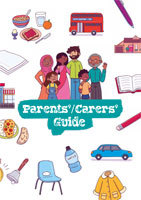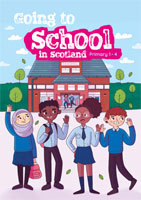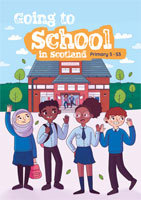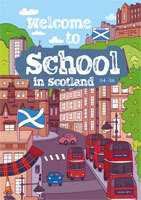English as an additional language
If English is not the main language that you and your family speak at home, your child may need some extra support to help them learn.
The good news is that you can help your child grow up to be bilingual, which can be a great advantage in life.
Why it's good to be bilingual
- Being bilingual can help your child understand how language works and can make it easier to learn other languages
- Research shows that learning and using more than one language can help to develop creative thinking and problem-solving skills
- Many jobs and employers need people who can speak, read and write other languages.
How can I help my child?
Speak your home language with your child
Your home language is important – it helps you to pass on values and traditions, keep your own cultural identity and stay in touch with family and friends. Also, becoming fluent in your home language will help your child when they come to learn other languages.
Here are some ways you can help your child develop skills in your home language:
- Ask your child questions
- Explain what you are doing in everyday routines and when you are doing activities with your child
- Sing nursery rhymes and songs
- Tell fairy tales and encourage children to retell stories, to talk about the pictures in the books and make up their own stories.
- Read dual-language books with your child. These are books (both fact and fiction) that have the same information in your home language and in English (go to your local library or ask at your child's school).
- Talk about schoolwork in your home language
- Socialise with friends from your home community and keep in touch with your extended family
- Listen to radio and CDs and watch television and DVDs in your home language
- You could attend home language classes and schools.
How can I also help my child to learn English?
Outside the home:
- Take your child to places where they can hear and use English – for example parks, clubs and playgroups
- Introduce new words and phrases to your child while you are out, for example ‘the green man’ and ‘the red man’ when crossing the road; names of fruit and vegetables at the supermarket.
At home:
- Make sure that your child's play areas and toys include materials in English (as well as your home language) that they can read or listen to on their own.
- Encourage your child to watch and listen to programmes on television, radio and the internet where they will hear English. It also helps to talk about these programmes with your child, either in your home language or in English.
Playing games, telling stories and singing songs:
- Play games like matching pairs and jigsaws – these will encourage your child to develop good use of the English language.
- Learn some English nursery rhymes and songs with your child.
- Tell fairy tales and encourage children to retell stories, talk about the pictures in the books and make up their own stories.
- Use pictures and real objects to encourage your child to learn to use English and to use new words and phrases (for example when they ask for a snack.)
How can I improve my own English language skills?
If English is not your first language and you would like to learn more to support your child or children in school, speak to the school first who may have information about English classes running in your area.
Further information
This leaflet has information about when children start (and finish) school in Scotland and what your child will study at school. Download it in English or Arabic.
PDF file: School education in Scotland - A guide for refugees (271 KB)
PDF file: School education in Scotland - A guide for refugees (Arabic) (356 KB)
Educational packs to welcome refugee families into Scottish Schools
 |
 |
 |
 |
Bilingualism Matters has a frequently asked questions section for parents which is available in a number of languages.
